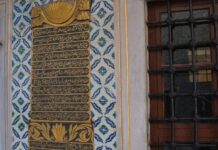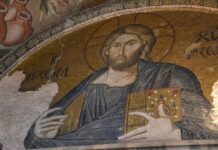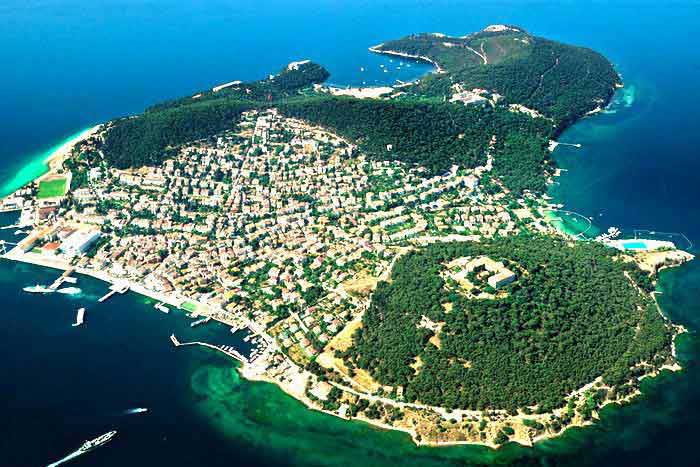For whatever reason, Diocletian did not immediately put into effect the decree he had discussed with Constantine, but the promise of a position in the Imperial Guard was fulfilled immediately. The following day, the same orders that dispatched Maxen tius to Italy and Maximin Daia to the Euphrates also named Flavius Valerius Constantinus a centurion assigned henceforth to duty in the palace.
At the first opportunity, about a week later, Constantine rode to Drepanum to tell his mother of his new honor. He found her in the garden of the small villa, with a slender girl who was, he judged, about sixteen. She was quite pretty, with delicate features, fight hair and bright intelligent eyes.
“This is Minervina,” Helena introduced the girl. “My son, Centurion Flavius Constantinus.”
The girl acknowledged the introduction graciously but when she would have left, Helena insisted that she remain. “You will want to hear about the goings on at the palace, my dear,” she said. “An officer of the Imperial Guard should know all the gossip.”
“So my surprise is not a surprise.” Constantine smiled wryly. “How did you know?”
“Marios sent word to me of your promotion at the same time that he sent a letter to your father at Gesoriacum.”
“Has the seige already begun?”
“Yes.” Helena looked at him keenly. “Are you very much disappointed that you will not be there?”
The palace at Nicomedia
Constantine shrugged. “It makes no difference now. Emperor Diocletian told me I can never become either Caesar or Augustus.” “And you are accepting the verdict, without fighting back? That doesn’t sound like the greatgrandson of Claudius Gothicus.” After the formal protocol of the palace at Nicomedia, Constantine found it pleasant to linger in the garden and particularly to admire the fragile loveliness of Minervina.
When Helena left them together while she supervised the preparation of the evening meal, he learned that the girl was the daughter of a merchant of Drepanum and a distant relative of his mother’s family. She was bright, too, and much better informed about the affairs of the Empire than the young women who were constantly seeking to attract his attention in Nicomedia. More fluent in Greek than he, she had read the great sagas of that romantic and highly vocal people.
“Where did you learn all these things?” Constantine asked admiringly.
“My tutor is Theognis of Nicaea, a great scholar. He is as much at home in Greek as he is in Latin.”
“It’s a pity I didn’t have him when I was a boy,” Constantine admitted. “Old Lucullus knew only Latin and not too much of that. Fortunately a soldier has little need of education, except in the arts of war.”
“When you’re Emperor, you can hire a Greek minstrel to sing to you of Homer and Odysseus, or a Latin poet to recount the voyages of Aeneas.”
“Are you a seeress, who looks into the future? Or perhaps a priestess serving an oracle?”
Read More about Precious metal in the coinage Dominus








